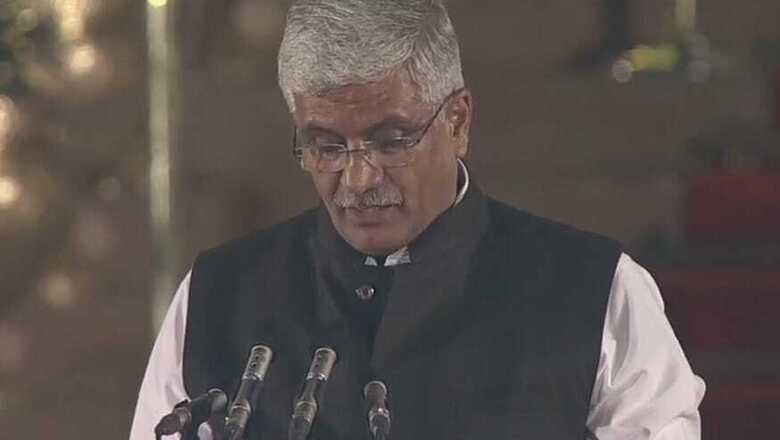
views
New Delhi: A bill seeking to set up an institutional mechanism for surveillance, inspection, operation and maintenance of specified dams across the
country was passed by Lok Sabha on Friday with the centre asserting it has no intention of taking over power of the states.
The provisions of the bill is proposed to be applied to all specified dams in the country which have height of more than 15 metres, or between 10 metres to 15 metres.
Responding to the debate on the Dam Safety Bill, 2019, Jal Shakti Minister Gajendra Singh Shekhawat said the centre has no intention of taking over the powers of state through the draft law.
Shekhawat said that in 2016, states were consulted on the bill and most agreed that it is better than the 2010 draft.
The Minister asserted that through the proposed law the centre does not want to take control of the dams, water or power generated by it.
He also made it clear that there will be no interference on part of the centre or the Central Water Commission officials.
The centre has formulated emergency action plan for 180 dams.
Referring to Polavaram project in Andhra Pradesh, he said as the state government has cancelled the tender, the cost of the project is likely to go up over the years.
He said Parliament has the legislative competence to draft laws which relate to public security and safety.
The bill envisages a two-tier structure at national as well state level to ensure safety of dams in the country, said Jal Shakti Minister Gajendra Singh Shekhawat while moving the bill.
Observing that safety of dam is extremely important as it concerns lives of people, property and flora and fauna, the Minister said "there is a need to have a common protocol for safety of dams in the country."
There are 5,745 reservoirs in the country of which 293 are more than 100 years old. The age of 25 per cent of dams is between 50 to 100 years and 80 per cent are over 25 years old, he said.
Among other things, the bill also seeks to resolve the inter-state issues concerning maintenance and safety of dams, he said, adding as many as 92 per cent of dams in the country are on inter-state river basins.
He further said that 40 dams have collapsed in India since Independence and worst such disaster occurred in Gujarat in 1979 leading to loss of thousands of lives of people.
The dam collapse always becomes an international issue, he said, adding it would be a matter of national shame if it is found the collapse was on account of poor maintenance.
The present bill is based on the earlier draft bill which could not be pushed in the previous Lok Sabha, he said. It includes various suggestions of the Standing Committee which had scrutinised the earlier bill.
The bill, he added, envisages constitution of a National Committee on Dam Safety headed by the Chairman, Central Water Commission.
The legislation also envisages setting up of a National Dam Safety Authority to be headed by an officer not below the rank of an Additional Secretary, to be appointed by the central government.
The main task of the National Dam Safety Authority includes implementing the policies formulated by the National Committee on Dam Safety, resolving issues between State Dam Safety Organisations (SDSOs), or between a SDSO and any dam owner in that state, specifying regulations for inspection and investigation of dams.
The NDSA will also provide accreditation to agencies working on construction, design and alteration of dams.
The proposed legislation also envisages constituting a State Dam Safety Organisation whose functions will be to keep perpetual surveillance, inspection, monitoring the operation and maintenance of dams, keeping a database of all dams, and recommending safety measures to owners of dams.
The bill provides for two types of offences obstructing a person in the discharge of his functions, and refusing to comply with directions issued under the proposed
law.
As per the provisions of the bill, offenders will be punishable with imprisonment of up to one year, or a fine, or both. If the offence leads to loss of lives, the term of imprisonment may be extended up to two years.
Offences will be cognisable only when the complaint is made by the government, or any authority constituted under the bill.


















Comments
0 comment